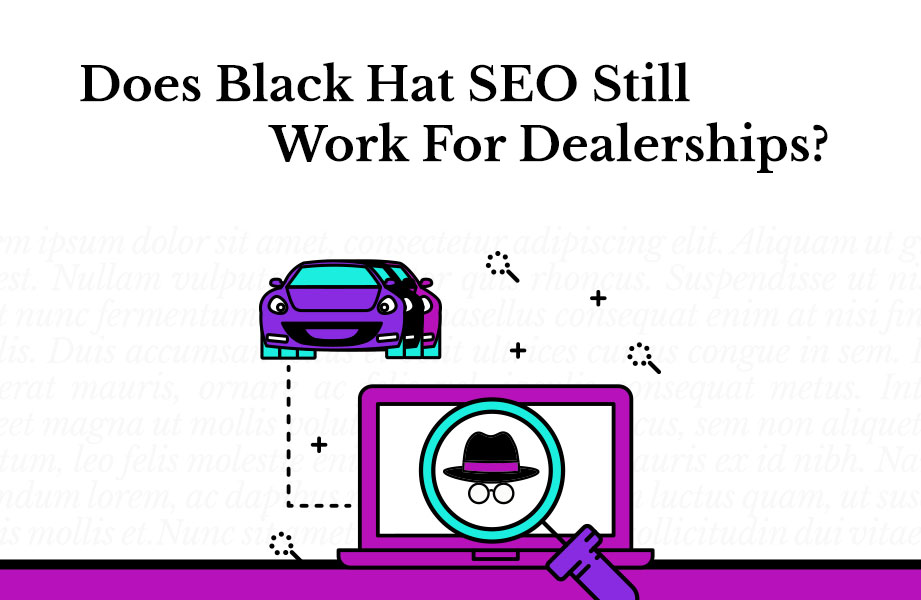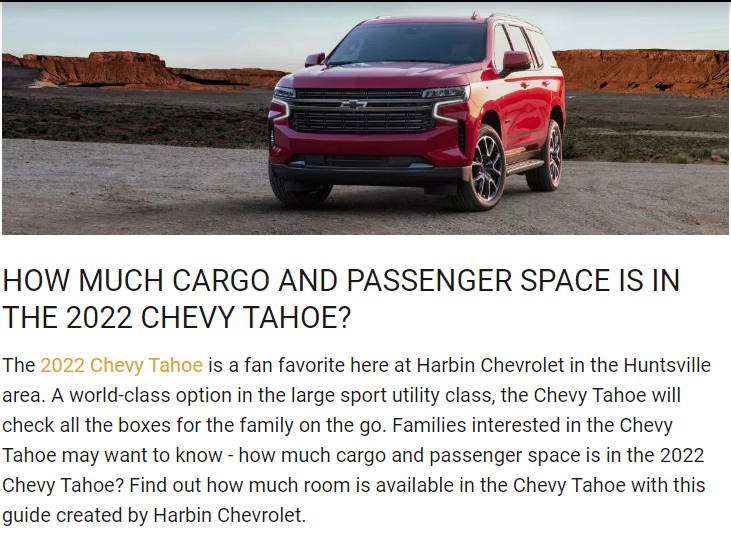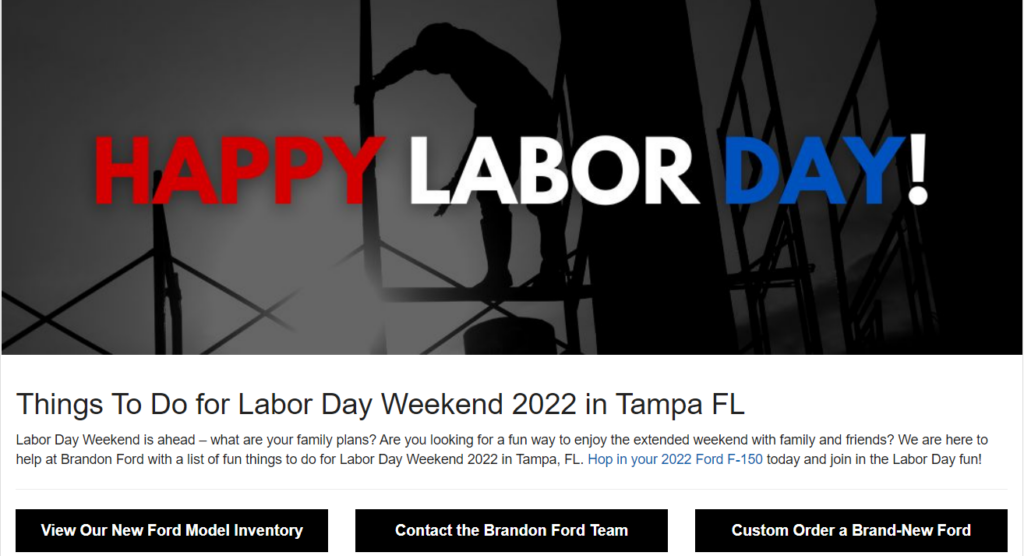The Internet used to be a lot more of a wild west. People were using any trick they could imagine to outrank their competitors, and a lot of those tricks were dirty. We call those SEO practices Black Hat SEO which is a term also rooted in the old west as the villains often wore black hats. What’s worse, these tricks worked even for car dealerships. Does black hat SEO still work for dealerships? Phantom Copy takes a deep look at the black hat SEO strategies your dealership shouldn’t be using.
What Bad SEO Tricks Might be on Your Dealership’s Website?
Once you know what to look for, it’s absolutely amazing what you will find on dealership websites. The common ones are keyword stuffing, cloaking or redirecting, link buying, and even content theft. There are more black hat tricks than that, but these are the big ones that are still dragging down dealership websites across the country. You may want to make sure your website isn’t using any because, spoiler alert: search engines are smart, and you will not find long-term success using black hat SEO strategies.
The Dark Art of Keyword Stuffing and Why It’s Dead
Ask any SEO expert out there, and they will all tell you the same thing, keyword stuffing is not just a bad thing, it will actively hurt your site. Some SEO specialists may remember the days when keyword stuffing was almost necessary to compete for rank position, but those days are long gone.
These days, if you keyword stuff, not only will it be ineffective, it will often have the opposite effect. When a search engine like Google crawls a page and finds what it thinks to be keyword stuffing, the page will get ignored or even penalized. It may sound harsh, but the result has been much better content and information on the web and searchers ending up where they want to go instead of the page with the most keywords.
What is Keyword Stuffing?
Keyword stuffing takes the form of throwing a ton of keywords, often in a stream, without context, and not directly related to the page. Sometimes keyword stuffing might even be hidden from the view of the searcher but still in the code for a search engine to read.
Imagine an oil change page that features a paragraph somewhere listing “how to change oil in a Chevy Silverado, how to change oil in a Ford F-150, how to change oil in a Nissan Titan, etc.” Obviously, no page is going to be able to actually cover the oil change process for all of these models. This is just an attempt to trick the search engine and the searcher into landing on a general page when they are looking for specific information. If the page isn’t specifically speaking to these models, then you are keyword stuffing. Some pages took it to the extreme by targeting keywords just to bring traffic that had nothing to do with the topic at hand.
But You Should Still Use Keywords… Right?
Keywords are far from dead. In fact, these days the art of not only selecting the right keyword but also writing to capture other adjacent and relevant search terms is the name of the game.
Going back to that oil change page. Imagine we have a page with the primary keyword “Learn to Change Your Oil Yourself” Writing the content of that page with keywords in mind is the difference between writing “learning to change your oil” and “learning how to change your oil.” The latter includes the keyword “how to change your oil.” This is just one instance though. A well-written page will have dozens of these little micro-decisions to give the whole page the best chance to rank for multiple keywords. It may sound like keyword stuffing a little bit, but the difference here is that any searcher that these keywords attract is still going to find the answer they need.
Read More: How to Improve Your Dealership’s Content Marketing
Should Your Dealership Use Redirects?
Redirects are good, every large site will likely employ a few, and there are certainly larger sites that use hundreds of redirects. However, just like a car is good, someone could still use one to rob banks. Much in the same way, a redirect can be part of a nefarious strategy known as cloaking.
When Are Redirects Bad?
How do you use redirects? Maybe you had a landing page for a special. The special is over so you redirect people to the generic specials page. Perhaps you just got a new website provider, and many of your pages aren’t carrying over so you are redirecting that traffic to other relevant pages. Another example could be redirecting people to a custom out-of-stock page when you lack inventory for their search. All of these are good uses, and do you know what they all have in common? Relevancy.
As long as you are redirecting people to relevant pages, especially from pages that no longer exist, or at least are no longer relevant, then your redirect is a good use case. It’s when you instead create a page (or a bunch of pages) to try to steal traffic from other search terms but then dump the searcher out somewhere that they didn’t intend to be. This is considered a form of cloaking.
What Does it Mean to Cloak Content?
When you go to a website, there is a lot of stuff behind the scenes that you don’t see. If you were to look at the source code, you would find more information than is made available upon normal viewing. That’s perfectly okay and is standard practice. However, someone who was trying to be sneaky could add content that they only want the search engines to see.
Why would they do this? Let’s give you an example. Every dealer with a sound SEO strategy will have a good number of pages that are earning good reliable traffic. What if instead of putting that content on a blog, you embedded it, hidden from view, on an inventory search results page? Now, everyone that wanted to see the latest news on your brand’s new EV is just dumped into an inventory page, this time, without even a redirect.
Does Cloaking Work?
Guess what, modern search engines are smart. Incredibly smart. Not only do they know when they are being redirected to pages that aren’t relevant, but they can also usually tell when content is being hidden from users. At best, these tricks will do nothing for your pages, at worst, you will see your rankings tumble into the depths of search results pages that people never scroll down to.
You Can Buy a Car, But Can You Buy Traffic?

Over time, by paying the right SEO team, yes, money can buy you traffic. The flip side of that, as you will see all over the Internet, are people that want you to believe paying them money will get you traffic now. Not just traffic either, but traffic through coveted links on other websites.
As the word implies, the Internet is a net or a web of different sites, and in one way or another, all those sites are linked to each other. Sites that have more links going to them will perform better. In fact, this goes beyond people simply following links. If your site has a lot of links going to it, then search engines like Google will consider your website as an authority. What could go wrong?
Don’t Buy Links… It’s Bad For Business
For a few hundred bucks you can get yourself a bunch of links all funneled into your site. That sounds like a good deal right? Wrong. Search engines like Google have had a lot of success identifying link farms and not only punishing them but also the websites that use them.
Do you know what major company once paid for a link, got caught, and penalized for it? None other than Google. The Google Chrome division once paid for a link, violated their own policies, and then penalized themselves. About 10 years ago, for 60 days typing the search term “browser” into Google did not yield “Google Chrome” in its results. That’s how seriously Google takes this. The link was clearly paid for by accident, and still, Google did not hold back… on itself.
Should Your Dealership Have Links to Other Websites?
Where it makes sense, of course. You probably don’t want a lot of links to your OEM, as you don’t want potential car buyers leaving your site for information elsewhere. However, if you have a blog you might be writing smart blog posts on local events, and linking to places relevant to those events is a good thing. Also, sometimes putting those links out there can get others to link back to you, which is what we are all here for.
However, look out for the comments sections of your blogs. Many dealership blogs are based on WordPress. Even some providers with proprietary back-ends still use WordPress for the blog portion of your website. That’s totally fine and good. There’s a reason WordPress is the most used website backend on the planet, but it also means that if you have comments turned on, bots and bad actors might be lurking down there ready to include links to other websites. These are links you don’t want because they do two very bad things. They might get users to leave your website, and they might make search engines think you are a link farm.
How Do You Get Backlinks the Right Way?
We’ve established that backlinks are good, as long as you don’t pay for them. Well, then how do you get them? There are a lot of strategies. Having a strong presence in your community both digitally and in person can help drive your linking strategy. A strong press release strategy can help generate links and interest in your brand. Even participating in sponsorships and asking others for links will get you where you need to be. Don’t forget to make sure you are listed in places like Yelp and even your local chamber of commerce.
How Should a Dealership Use a Press Release?
Copying Your Work Wasn’t Okay in High School, It’s Still Not Okay Now
You’re a car dealer, and that means you are competitive. You are likely always surfing the web, looking at nearby dealers, seeing what they are doing, and sometimes you might even find content of theirs that you like.
We know what you are thinking. Don’t do it. What is stopping you from grabbing that content and throwing it up on your site? Two things actually. It won’t perform and it may get you in trouble too.
Is Content Theft Illegal?
Theft is right there in the phrase, but if you need someone to tell you still, yes content theft is illegal. A good SEO specialist will be able to discover the theft without too much effort too. Once you are found out the other site can get their lawyers involved. And yes, in almost all cases, it can be proven who had the content first. Now you are potentially facing legal action and did it do any good for your site?
Will Stealing Content Improve Your Site?
Have we mentioned that search engines like Google are smart? It’s the common thread throughout this entire article. If you think a search engine that is literally taking the time to read every piece of content on the Internet isn’t going to notice that two of those pieces are exactly or nearly exactly the same, then you’d be wrong. Once this is noticed, your beautifully copied page will disappear from search results. That’s not all, the rest of your site can be penalized and suffer too.
Why Does Anyone Steal Content Then?
If it’s illegal and not likely to improve your site, why does anyone ever do it then? First off, you have people that don’t know any better. Perhaps they just want what the other guy has. Seeing no barrier to getting that content beyond a copy and a paste, they figure it’s worth a shot.
On the other side, there are sites that will employ bots to grab that content as fast as possible hoping to pass it off as their own. They do it enough and use enough different sites that they are hoping to get away with it long enough to either get a following for their own legitimate content before the search engines pull the rug out from under them, or get enough ad revenue before they get caught to make it all worthwhile.
But What if You Really Want That Content?
If you really want that content on your site, then do what every great American innovator has done. Create your own thing to compete with it, and make it better than the other guy’s. That’s often what SEO is. We are all looking for content out there and finding ways to do it differently or better than the other guy.
You Know What’s Better than Black Hat SEO? Good SEO!
If you need good SEO on your dealership’s website, then you should consider the team at Phantom Copy. Our team has years of experience providing great content to dealerships that get them to rank. Get a Phantom and rise up out of the rankings graveyard.


